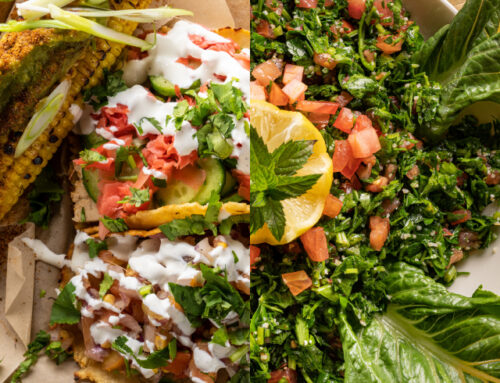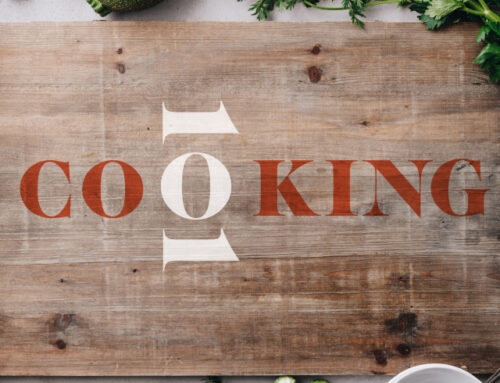



BY KELLY HUTH
Four sustainability-minded farmers and butchers that are staking a claim in the Lehigh Valley

very purchase, every dollar spent on food is a choice. And when it comes to the meat section of your local grocery store or farmers’ market, it seems there are more choices than ever. Pasture-raised. Grass-fed. Grass-finished. Antibiotic- and hormone-free. Savvy consumers are paying more attention to where their food is coming from and how it’s been raised.
And the benefits of buying higher quality, more sustainably-raised meat extend beyond the plate, according to Allison Czapp, director of Buy Fresh Buy Local Greater Lehigh Valley. Not only are grass-fed proteins richer in omega-3 fatty acids, antioxidants, and vitamins A, C, and E, but the way they’re raised has a far-reaching impact on the environment. Keeping a pasture, for instance, allows grasses to trap carbon dioxide, strong roots to prevent erosion and runoff, and animals to fertilize the soil. Not to mention, animals raised on pasture are happier and healthier than their factory farmed counterparts.
If the health and environmental benefits aren’t enough to sway you, consider the economic impact. Of the roughly $2.7 billion dollars consumers in the Greater Lehigh Valley area spend on groceries per year, a meager one percent comes from local foods. “If all adults in the Lehigh Valley spent just $10 per week on locally-grown food during the 20-week growing season, it would add $300 million to our local economy,” Czapp says.
So, if you want to upgrade your meat-eating habits, but you’re wondering where to start, take a look at these four sustainability-minded butchers and farms that are staking a claim in the Lehigh Valley.

BY KELLY HUTH
Four sustainability-minded farmers and butchers that are staking a claim in the Lehigh Valley
 very purchase, every dollar spent on food is a choice. And when it comes to the meat section of your local grocery store or farmers’ market, it seems there are more choices than ever. Pasture-raised. Grass-fed. Grass-finished. Antibiotic- and hormone-free. Savvy consumers are paying more attention to where their food is coming from and how it’s been raised.
very purchase, every dollar spent on food is a choice. And when it comes to the meat section of your local grocery store or farmers’ market, it seems there are more choices than ever. Pasture-raised. Grass-fed. Grass-finished. Antibiotic- and hormone-free. Savvy consumers are paying more attention to where their food is coming from and how it’s been raised.
And the benefits of buying higher quality, more sustainably-raised meat extend beyond the plate, according to Allison Czapp, director of Buy Fresh Buy Local Greater Lehigh Valley. Not only are grass-fed proteins richer in omega-3 fatty acids, antioxidants, and vitamins A, C, and E, but the way they’re raised has a far-reaching impact on the environment. Keeping a pasture, for instance, allows grasses to trap carbon dioxide, strong roots to prevent erosion and runoff, and animals to fertilize the soil. Not to mention, animals raised on pasture are happier and healthier than their factory farmed counterparts.
If the health and environmental benefits aren’t enough to sway you, consider the economic impact. Of the roughly $2.7 billion dollars consumers in the Greater Lehigh Valley area spend on groceries per year, a meager one percent comes from local foods. “If all adults in the Lehigh Valley spent just $10 per week on locally-grown food during the 20-week growing season, it would add $300 million to our local economy,” Czapp says.
So, if you want to upgrade your meat-eating habits, but you’re wondering where to start, take a look at these four sustainability-minded butchers and farms that are staking a claim in the Lehigh Valley.
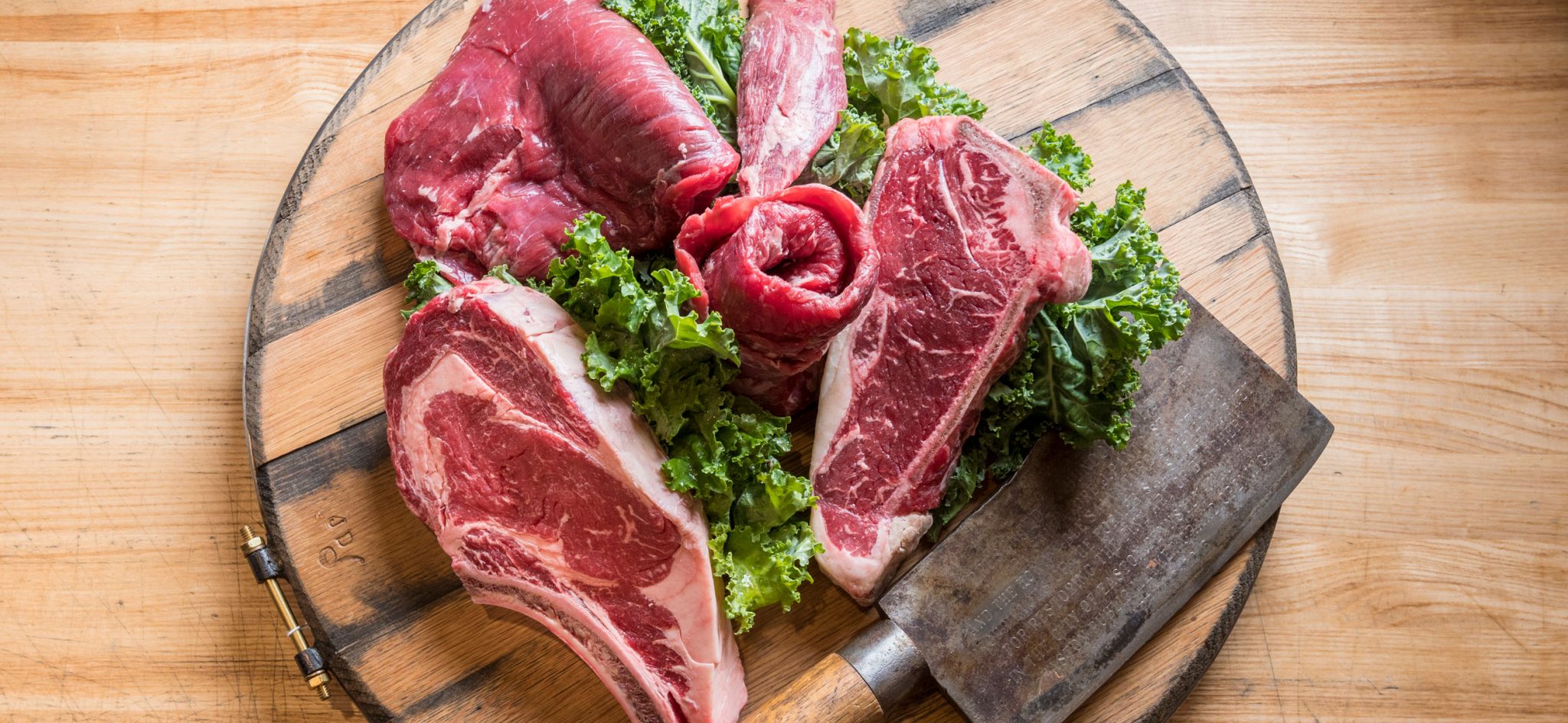

Walk up to the Dundore and Heister stand at the Easton Public Market, and you’re almost guaranteed to see a cut you’ve never heard of nestled in among your favorites. Faux filet. Oyster Cut. Ranch Steak. “As a whole animal butcher, we have a lot of unique cuts you won’t find anywhere else,” says Tod Auman, who co-owns the Easton and Wyomissing butcher shops with his wife, Chrissy. Take the flanken for instance. The thinly-sliced short rib grills up in no time, and has a flavor you can’t imagine, he says.
Auman wants customers to see Dundore and Heister as reminiscent of a simpler time — a time when you knew the name of your butcher and could come in for advice, questions, or custom cuts. The staff is trained to offer cooking advice, direct you toward roasts and cuts that fit your budget or party size, and even suggest a recipe. Dundore and Heister sources from local farms, offering pasture-raised, antibiotic- and hormone-free beef, pork and lamb, and pasture-raised or organic chicken. Customers will also find dishes to make any Pennsylvania Dutch grandmother proud — scrapple, pork schnitzel, and bone broth.
WHERE TO FIND ‘EM
EASTON PUBLIC MARKET
Wednesday – Saturday 8 am – 7 pm
Sunday, 8 am – 5 pm
325 Northampton St, Easton
610.374.MEAT, ext. 2
dundoreandheister.com
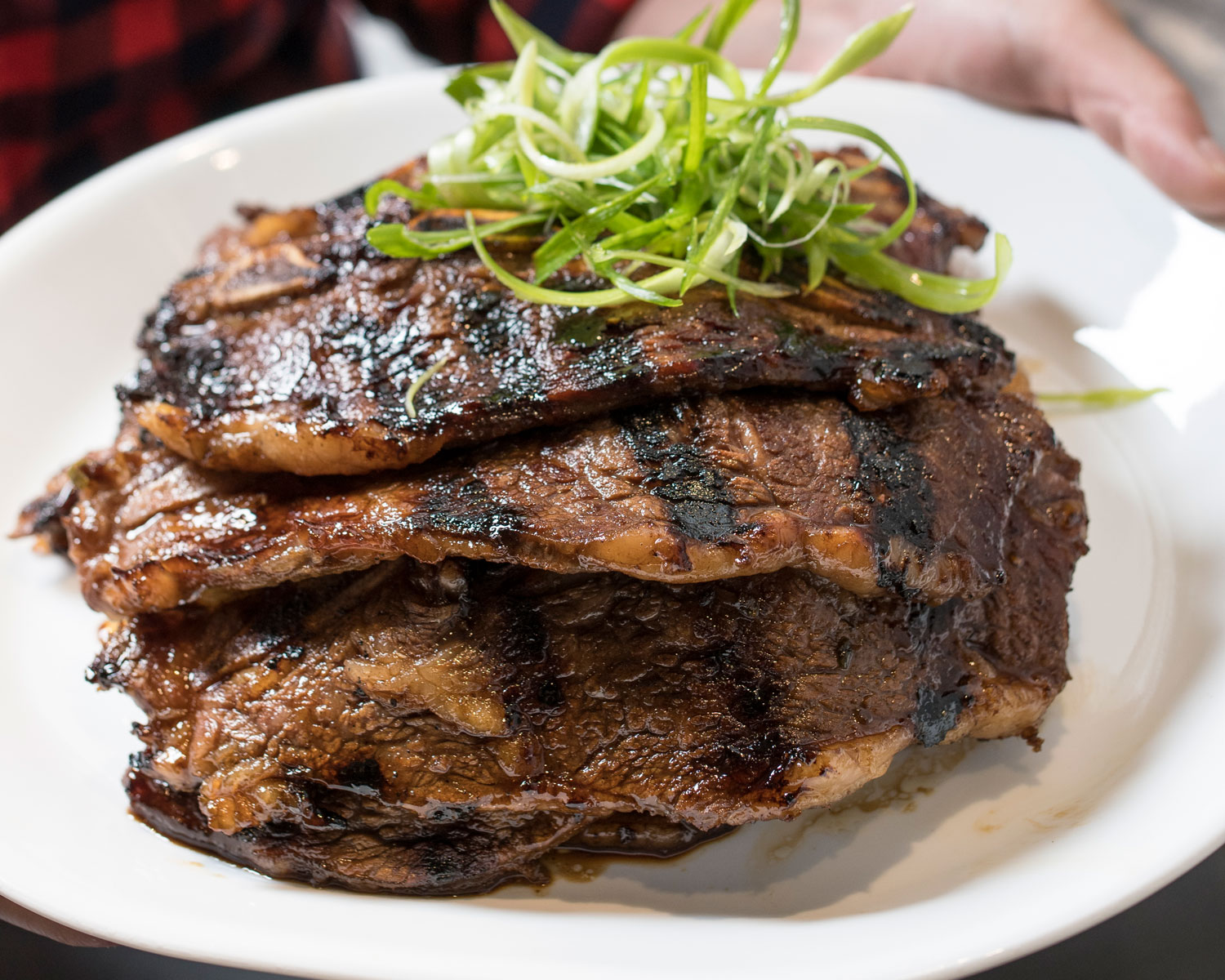
DUNDORE AND HEISTER’S HAWAIIAN BBQ RIBS
“CUTTING THE WELL-MARBLED SHORT RIB VERY THIN TENDERIZES IT AND ALLOWS FOR A FAST FLASH ON THE GRILL INSTEAD OF THE HOURS-LONG BRAISING PROCESS,” SAYS CRAIG LEWIS, CHEF AT DUNDORE AND HEISTER. LEWIS SHARES ONE OF HIS FAVORITE RECIPES FOR FLANKEN CUT SHORT RIBS, FEATURING A SWEET AND SALTY MARINADE THAT RESULTS IN THE PERFECT AMOUNT OF CARAMELIZATION.
- 2 lbs. D&H Flanken Cut Short Ribs
- 1 medium onion
- ½ cup water
- 1 cup diced pineapple
- 1 cup soy sauce
- ½ cup rice wine vinegar
- ½ cup brown sugar
- 6 cloves of garlic
- 3 green onions
Roughly chop all ingredients and pulse in the blender for 20 seconds. Marinate the D&H short ribs in an airtight bag or container for 6 to 24 hours. Discard marinade and grill on high heat for three minutes per side. (Pro tip: To get an airtight seal on a bag, submerge the product and the bag in water, leaving the top open. This will force all the air out of it before you close it.)
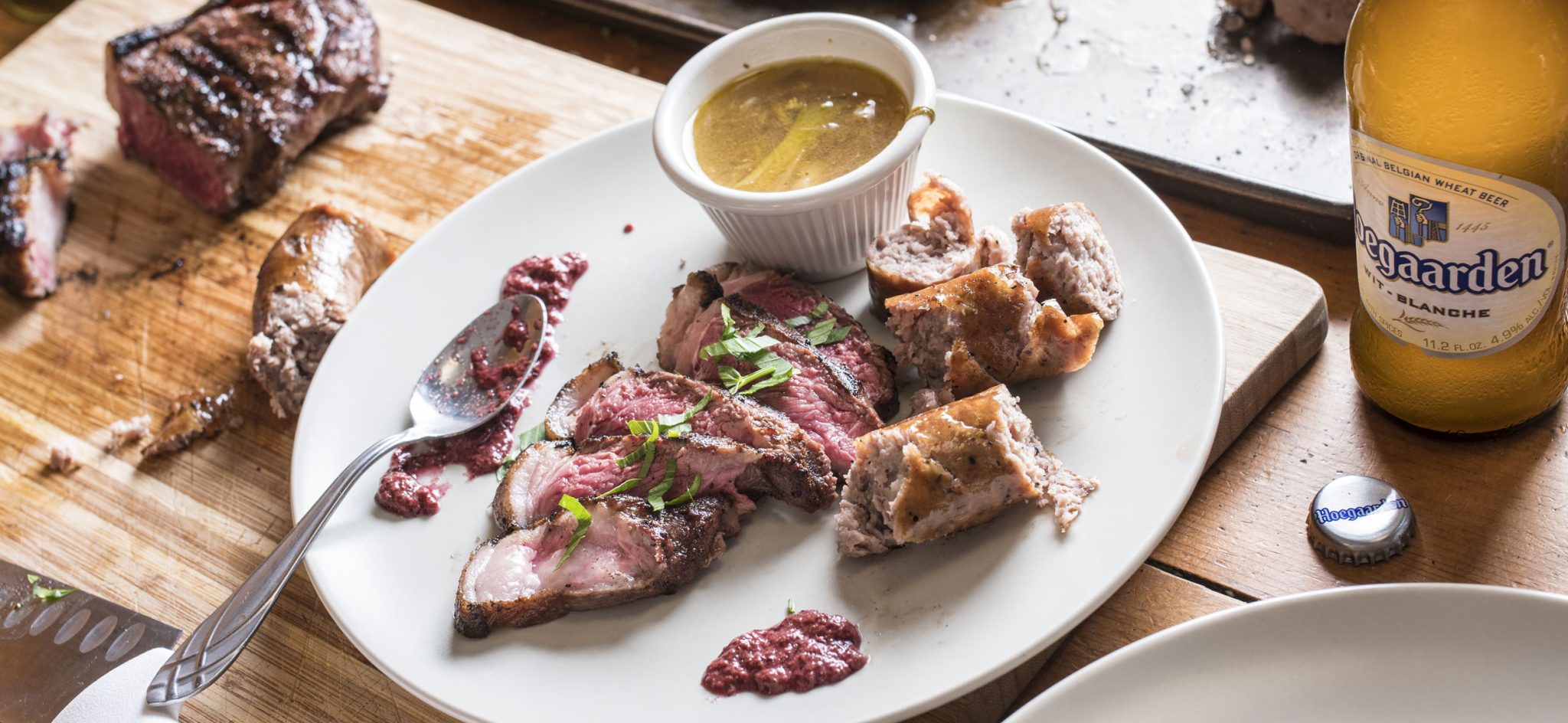

When a small log cabin was delivered to the Wieders’ farm 17 years ago, neighbors assumed it was a playhouse for Rod and Rebecca Wieder’s kids. But the cabin would launch Backyard Bison’s farm store, where customers can find pasture-raised and antibiotic-, artificial hormone-, and steroid-free bison. “Bison is naturally leaner than beef, high in iron, and very tasty,” says Rebecca Wieder.
Expect cuts similar to beef—chip steak, burgers, filet, roasts, New York strip, ground beef, London broil, sausages, hot dogs—as well as kidney, tongue, liver, and marrow bones. Because bison is lean like venison, it may need a bit more liquid when braising or a shortened cook time. (Keep in mind, Backyard Bison only takes cash or check.)
WHERE TO FIND ‘EM
PHOENIXVILLE FARMERS’ MARKET
Saturday 9 a.m. to 1 p.m.
EMMAUS FARMERS’ MARKET
Sunday 10 a.m. to 2 p.m.
BACKYARD BISON FARM STORE
Saturday 10:30 a.m. to 3:30 p.m.
685 Crowthers Rd, Springfield
610.346.6640
backyardbison.com
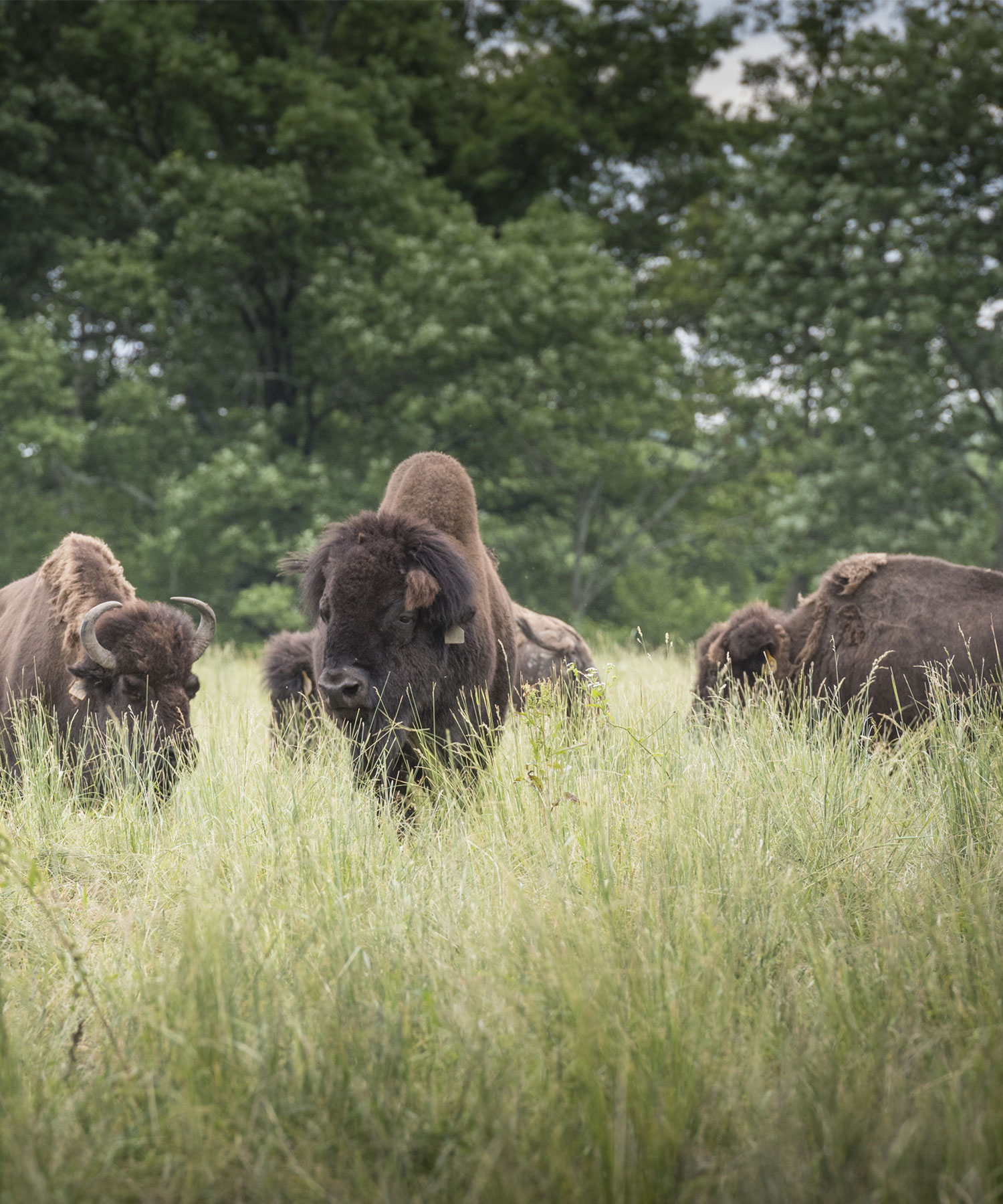
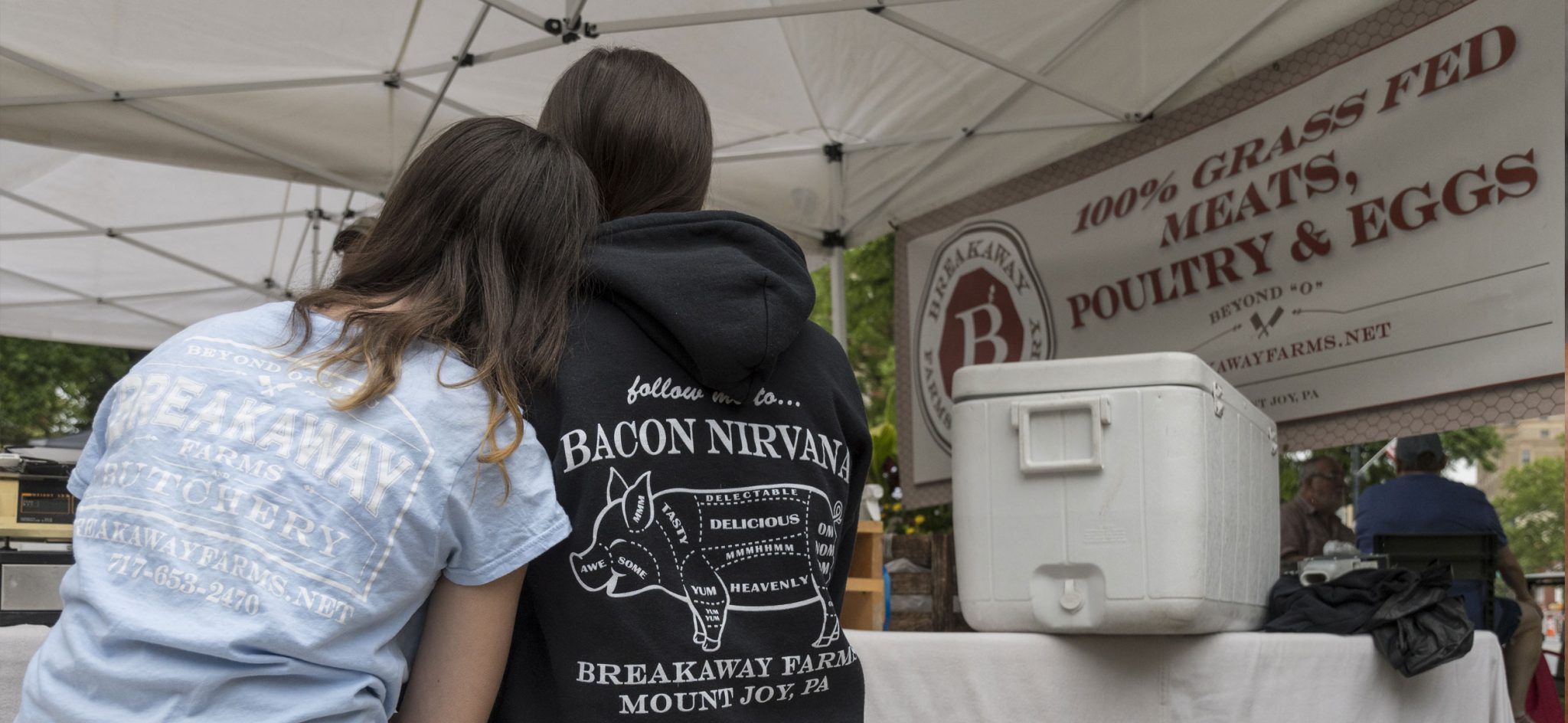

“A lot of times when people ask if our meat is organic, I say, we’re beyond organic,” says owner Nate Thomas. “We start with the organic standard and improve upon it.” That means practicing management intensive grazing, where animals are raised outside so pigs can be pigs and cows can be cows, Thomas says. The cows, sheep, and goats are grass-fed and never receive grain. Pigs, turkeys, and chickens feed on a locally produced organic grain mix. All animals are hormone-, steroid-, and antibiotic-free.
Because of its on-site butcher shop, Breakaway can offer 300 different products. That includes 75 flavors of sausage, from a summertime Blueberry & Thyme to a Black & Blue (coarse ground pepper and blue cheese) that’s only available from Memorial Day to Fourth of July. Find 35 flavors of bacon, a necessity as Breakaway Farms plays a substantial role in Easton’s PA Bacon Fest every year. Also offered are specialty cuts like pork flank steak, deli meats, jerky, pet food, and a line of charcuterie. Thomas studied traditional charcuterie in Italy two years ago and his studies paid off: Breakaway swept first, second, and third prize at the Pennsylvania Association of Meat Processors’ 2018 convention for its lonza, prosciutto, and coppa.
WHERE TO FIND ‘EM
EASTON FARMERS’ MARKET
Saturday 9 a.m. to 1 p.m.
EMMAUS FARMERS’ MARKET
Sunday 10 a.m. to 2 p.m.
BREAKAWAY FARMS RETAIL SHOP
(for pickup of preorders)
2446 Valleyview Rd, Mt. Joy
717.653.2470
breakawayfarms.net
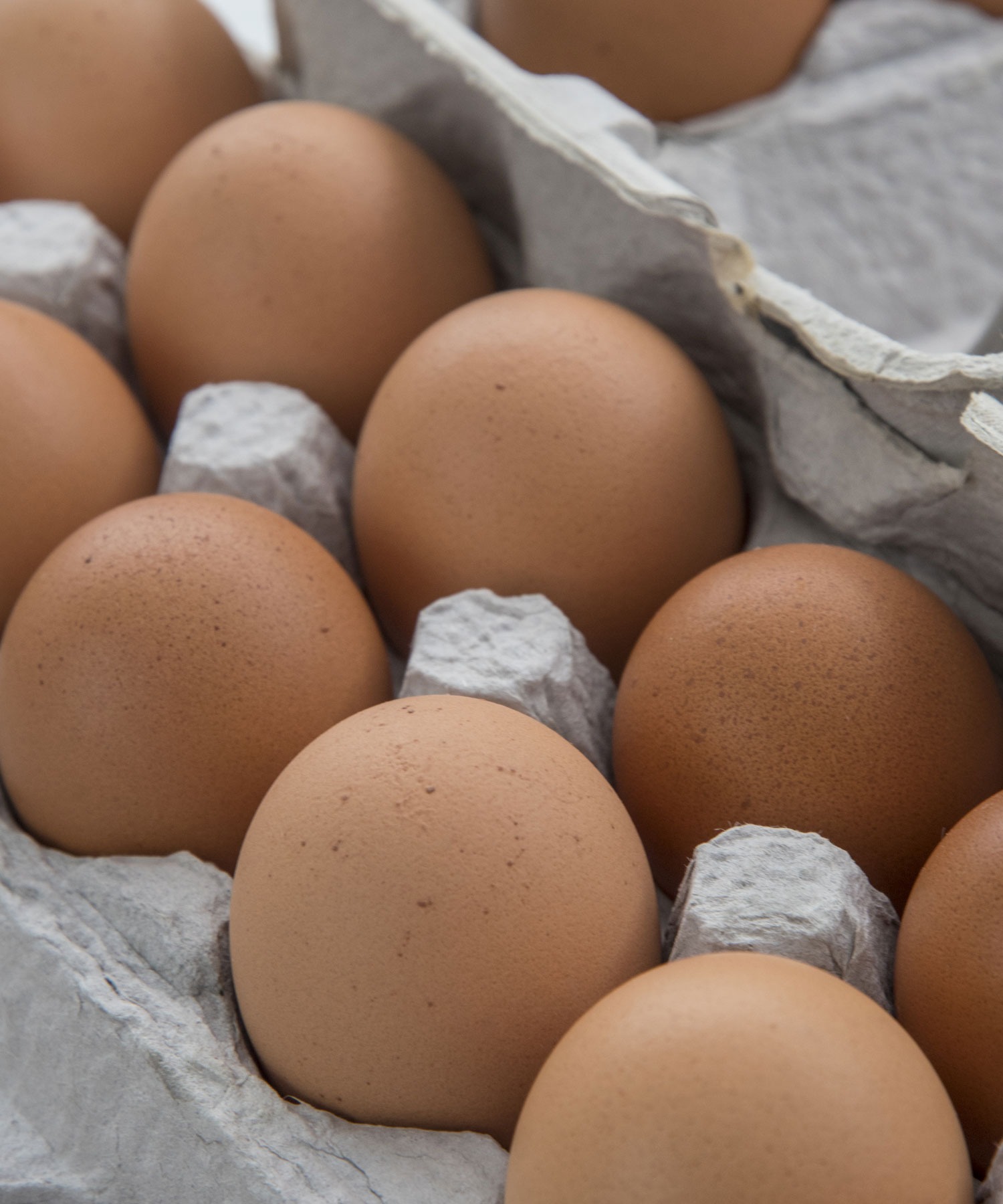
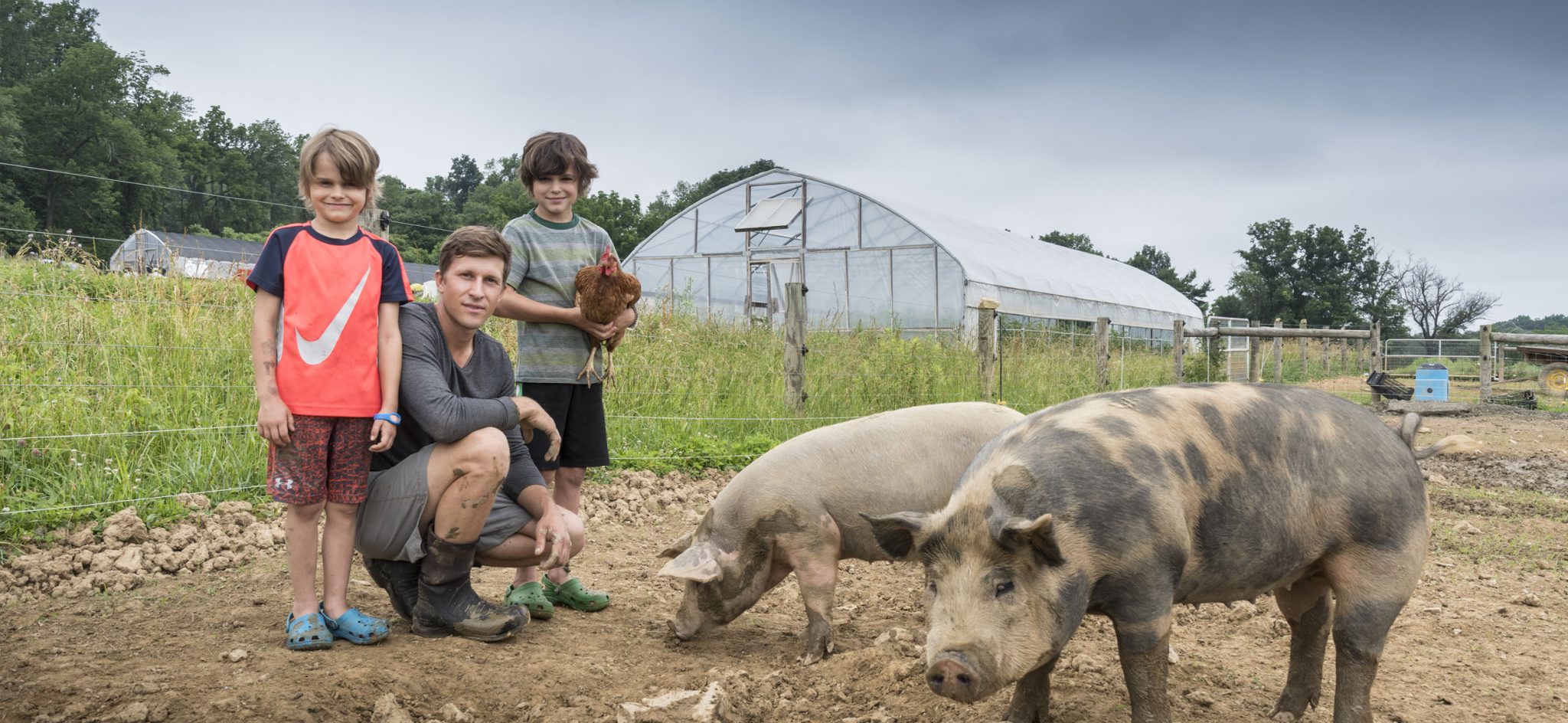

Since 2013, Wild Fox Farm has focused on selling pasture-raised chicken, eggs, pork, and lamb. The proteins are antibiotic- and hormone-free, with no nitrates or nitrites added. They also partner with Tussock Sedge Farm (Blooming Glen, Pa) and Frontier Pastures (Bally, Pa) to offer grass-fed and -finished beef, and hope to one day add that to their own list of offerings, according to owner Benjamin Davies. Wild Fox offers a variety of cuts and products, including pork chops, chicken wings and drumsticks, roasts, sausage, bacon, and ready-to-eat beef and pork snack sticks, which you can find at places like Church Street Market in Bethlehem and Emmaus Smoke Shop.
Wild Fox Farm also sells a variety of vegetables and uses a rotational grazing method. The latter allows them to grow cover crops like rye, red clover, and sudan grass when the field isn’t in use for vegetables, which increases the fertility of the land and provides a nutritious food source for their animals to graze on.
WHERE TO FIND ‘EM
EMMAUS FARMERS’ MARKET
Sunday 10 a.m. to 2 p.m.
WILD FOX FARM STORE
Tuesday and Thursday 2 p.m. to 6 p.m.
5015 Longview Ln, Barto
267.424.1439
wildfoxfarm.com
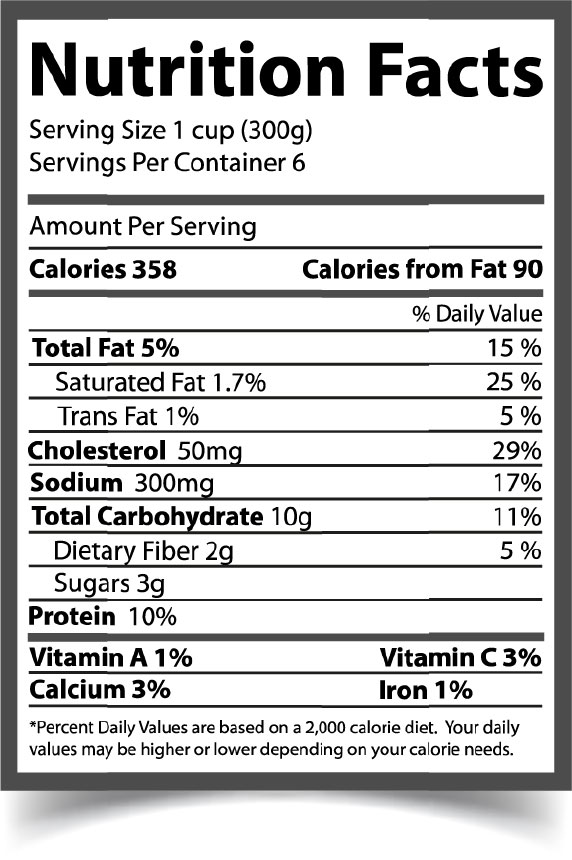
Label Lingo You Should Know
Some food claims are totally unregulated and have been co-opted by larger brands seeking to cash-in on the local-foods movement. Case in point: There is no standard length of time that an animal has to be on the pasture in order for someone to make that claim that it’s pasture-raised. So, if that—or anything else—is important to you, your best bet is to buy locally and talk to farmers and butchers about their practices. But before you do, it’s helpful to know some common meat terms and claims, and what they actually mean:
Pastured: “Pastured” or “pasture-raised” can refer to pretty much any farm animal that has spent time outside eating grass or forage. Again, this term isn’t regulated, so talk to farmers who make this claim to ensure their animals did, in fact, spend plenty of time roaming freely outdoors on pasture.
Grass-Fed/Grass-Finished: The diet of “grass-fed” animals consists of fresh grass during growing season and stored grasses, like hay, during winter or drought conditions. Grass feeding is used with cows, sheep, goats, and bison. “100 percent grass-fed,” or “grass-fed and -finished,” means no grains have been fed to the animals. Pigs and poultry cannot survive on pasture alone, so you won’t (or shouldn’t) see this label applied to them.
Antibiotic-Free: In some cases, antibiotics are fed to healthy animals such as cows, hogs, sheep, and chickens to prevent disease and stimulate growth, which isn’t good. “No antibiotics” implies that a farmer does not administer antibiotics to his or her animals, or that they only use antibiotics to treat sick animals that aren’t sold for meat.
Hormone-Free: All animals, of course, have naturally occurring hormones, but some commercial operations use hormones to speed animal growth. “Hormone-free” means no additional hormones have been given to animals to increase growth rate or milk production. Keep in mind: Federal law always prohibits the use of additional hormones in pork and poultry.
Source: Allison Czapp, director of Buy Fresh Buy Local Greater Lehigh Valley
As seen in the Summer/Fall 2018 Issue
Click to Visit Our Advertisers

